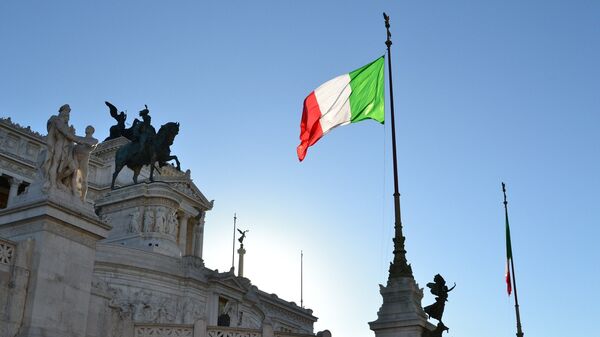Italian Prime Minister Giuseppe Conte gave a speech in parliament on Monday before the first vote of confidence to the PD-M5S government. He promised a more constructive partnership with the European Union in trying to loosen EU fiscal norms, given Italy’s massive public debt, and said he would work on a new policy with Brussels on the issue of redistributing migrants.
"All [in the new government] are directly or indirectly linked to the European narrative, which means linked to strong interests of those who manage Europe at this time — the French and the German who did not like the importance that Lega was giving to the issue of re-claiming Italy’s sovereignty," Mura, who is a member of the Lega party, said.
For example, Roberto Gualtieri, the new minister of finance of Italy, has been the chair of the European Parliament's economics committee since 2014.
"I have many doubts that this is a government that goes in the direction of the interests of our country. … Clearly this government does not satisfy me. We see that it was born under the pressure from Europe, from strong powers linked to Germany and France, but sooner or later we must go to the vote, be it in half a year, year or in 2023, and at that moment Lega will be ready to return to the government without conditions and obstacles that M5S has been creating in this period," he continued.
Conte will go to Brussels on Wednesday to start negotiations with the European Commission for more flexibility with fiscal norms.
He said his new government would start a season of reforms, including possible changes in immigration laws introduced by the previous interior minister, the leader of the far-right Lega party, Matteo Salvini.
Italy's previous government collapsed in August when Salvini, who also served as deputy prime minister at the moment and was known for his anti-EU and anti-immigrant statements and policies, called for a no-confidence vote to the government and to the prime minister in pursuit of a snap general election. The move was prompted by Salvini's unwillingness to continue the coalition with M5S, with whom he had differences on major policy issues.
However, the events unfolded differently, with the rival parties agreeing to form a coalition after long consultations with President Sergio Mattarella, thus pushing Lega away from the government. Conte was re-appointed as prime minister.
To formally enter into power, Conte's new government needs to win confidence votes in both chambers of the parliament. The vote takes place on Monday and Tuesday.
The views and opinions expressed by Roberto Mura are those of the speaker and do not necessarily reflect those of Sputnik.

